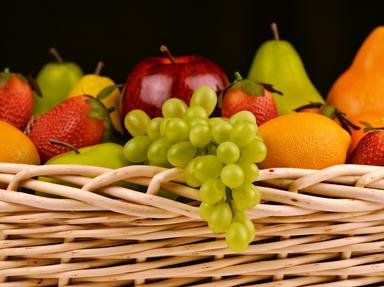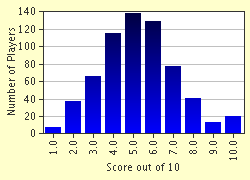Quiz Answer Key and Fun Facts
1. Let's begin with a true or false question. The apple is specifically mentioned in the biblical story of Adam and Eve contained in the early chapters of Genesis.
2. Greek myth is certainly rife with stories including the lovely apple. Perhaps the most well-known is the story about the 'Apple of Discord'. The goddess of discord, jealous that she had not been invited to an important wedding, decided to have a little fun at the expense of the unwitting Paris of Troy. Paris was required to decide which goddess was the most beautiful amongst three choices, a certain recipe for disaster! At whose wedding did Paris' fateful choice take place?
3. In Greek myth, which of these characters lost a running race based on her lust for three golden apples?
4. In the Tales of the Arabian Knights there is a story about a certain Prince Ahmed. Early in the story Ahmed finds an artificial apple that contains what special property that is bestowed upon any who breath its fumes?
5. One of my favorite apple-related stories is the one involving Isaac Newton and the apple tree. Legend has it that, while sitting under an apple tree at his family home in Lincolnshire, an apple plopped down on his head, immediately inspiring his formulation of the Universal Law of Gravitation. Surprisingly, this wonderful story may have never seen the light of day had it not been for which of the following authors?
6. Thoreau wrote, 'The owner of the axe, as he released his hold on it, said that it was the apple of his eye; but I returned it sharper than I received it.' in his 'Walden'. Thoreau was not the first to employ this popular phrase (apple of one's eye.) It appears in Shakespeare and a number of times in the Bible, among other places. Which is the first Bible book of the King James' Version to contain the phrase?
7. Which of these greats wrote the poem called 'Mending Wall', containing a reference to his non-voracious apple trees?
8. During the earlier half of the 19th century a man called Johnny Appleseed is said to have travelled the American 'west' (now the midwest) planting apple seeds and tending orchards. Was Johnny Appleseed a real person of history?
9. Which of these places of literature/myth is also known as the 'Isle of Apples'?
10. Several historians have ascertained that a newspaperman named John Fitzgerald was the first to publicly employ the term 'The Big Apple' in reference to which storied American city?
Source: Author
thejazzkickazz
This quiz was reviewed by our editing team before going online.
Any errors found in FunTrivia content are routinely corrected through our feedback system.

